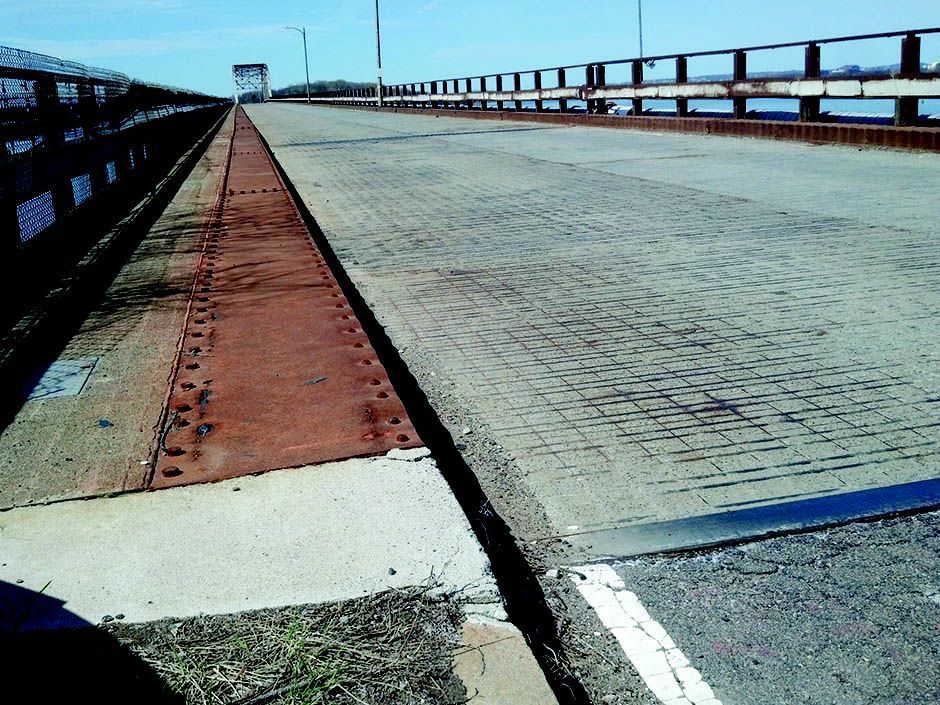BOSTON, Mass.—Around and after Thanksgiving, Boston citizens and city officials struggle to agree on a solution in the aftermath of the October 8 closing of the Long Island bridge, which displaced over 700 people from homeless shelters and detox/recovery programs.
On Tuesday, November 25, religious leaders from Boston held an interfaith service in the Boston Common in support of the people displaced from Long Island. Representatives from various Christian, Jewish, and Muslim communities spoke, read scriptures, and distributed prayer cards listing Boston’s average January temperature (29 degrees) and average wind chill (20 degrees) as a reminder of what is at stake. Reverend Tina Rathbone, Pastor of homeless worshipping community MANNA (Many Angels Needed Now and Always), told the story of Lucas (not his real name), an alcoholic member of her community who was days away from entering one of the island’s recovery programs when Boston closed the bridge on October 8. She hasn’t seen Lucas in two weeks. Pastor Mary Jane Eaton of the homeless church Common Cathedral told a similar story about two individuals she called Jasmine and Trevor, whom she also has not seen in some time. These stories have been commonplace since the bridge closed, with many programs losing track of former clients and many reports of relapse in the streets.
“We as people of faith can give voice to the voiceless,” said Pastor Eaton. “We need to actually talk to [the] voiceless [and] seek engagement with them, so we can carry their voices with ours on their behalf.”
The action was one of many events related to the island’s closing held over the two weeks around Thanksgiving. On Thanksgiving Day, members of the Boston Homeless Solidarity Committee picketed Mayor Walsh’s appearance at Woods-Mullen. They held signs demanding that the city declare a state of emergency, a call they have made since the Blackstone Community Center forum on November 12. Around this time, Jim Stewart, director of the First Church Shelter in Cambridge, issued the Long Island Refugees Challenge, calling for Mayor Walsh to join him for a night at the South End Fitness Center (SEFC). The challenge was issued in response to Mayor Walsh’s statements of confidence in Boston’s shelters, namely that there are enough beds for most homeless and decent conditions in the shelters.
In the basketball court of the SEFC, an emergency men’s shelter was set up after the October 8 closing of the Long Island bridge in order to accommodate some of the displaced 450 Long Island Shelter clients. The emergency shelter has a maximum capacity of 250 and only two toilets. Early arrivals get cots; later arrivals get mats. It is a temporary shelter until a more permanent location is set up. The current front-runner is a new set of modular units on Frontage Road, located near the Pine St. Inn.
On Tuesday, December 2, the city held a forum at Mattapan’s Mildred Avenue Community Center to discuss their proposal to relocate two Long Island programs—Wyman Re-entry and Transitions—to one building in the neighborhood. City officials Boston Public Health Commission (BPHC) Director Huy Nguyen, Chief of Health and Human Services Felix Arroyo, and Chief of Civic Engagement Jerome Smith presented the proposal. Only a handful of citizens showed up, and those who did said they found out about it last minute from a local blog. Even Councilor Charles Yancey said he found out about the meeting last minute.
Many voiced safety concerns, including some who were uncomfortable with its proximity to the Foley Senior Residences. Some people did not want former addicts or former prisoners coming to their neighborhood, arguing that not all recovery programs work out and that Mattapan already has plenty of these programs and problems of its own. Some seemed to believe it would be a detox clinic. The city assured these citizens that these clients would not be detoxing, would be held to a strict regiment (no “roving packs of individuals” in the streets), and had to graduate from detox and pass drug tests to qualify for residency. But even the few who weren’t opposed to relocating the programs to Mattapan were outraged by the lack of communication about the meeting and the issue: citizens repeatedly called it disrespectful. They were tired of the city treating Mattapan like a “dumping ground” and questioned if the city actually looked at other neighborhoods and locations. They worried this was a “done deal.”
Additionally, when confronted with comments that the Massachusetts Department of Transportation made to SPARE CHANGE NEWS that the state provided only an “advisory opinion” to close the bridge and not an order, Chief Smith confirmed that in the end, the decision was the city’s call. Chief Arroyo also added he was still committed to appointing homeless citizens to any planning committees for relocation efforts: a man, a woman, and a representative from the LGBT community.
A meeting was held the following Thursday at Trotter Elementary, in front of a much larger audience. However, similar concerns were raised by Mattapan and Roxbury residents who opposed the new location yet felt the decision was already made. At the moment, it is unclear if the city will host more meetings to reevaluate locations, or if this really is a “done deal.”

Leave a Reply
You must be logged in to post a comment.